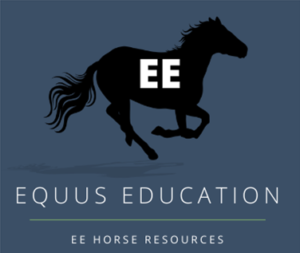Wayne was kind enough to like my Horse Country page on Facebook and left a comment regarding also being an Australian writer for the horse racing industry. Upon finding out about this, I asked him if he’d consider being profiled on Equus-Blog and he kindly answered some questions for me.
How much of your day/week is related to horses?

Horses are always on my mind. I am either writing about them, or trying to find the next winner at Randwick!
When I was writing the doctoral thesis that was the basis for my first book, Sydney’s Pony Racecourses: an Alternative Racing History, I was working full time in the City. Each morning I read for an hour on the train, wrote for an hour at lunchtime and again on the way home, then for another two hours before bed.
I am currently writing a history of horseracing in Sydney in the 1970s, and work on that for three hours a day. I am also simultaneously writing a second volume of racing short stories and novellas as a follow up to the Gambler’s Ghost and Other Racing Oddities, which was published last year. I mainly work on these on Saturday mornings while listening to Three-Way Turf Talk and The Late Mail on the racing station.
In this field of work, is it possible to be a full time professional and earning a liveable income?
Well Dick Francis managed to earn a very lucrative living from writing horseracing novels when he retired as a jockey. There are others who make a living from it, and while I aspire to it I’m a long way I think from achieving it. But I do certainly supplement my main income by writing on racing.
I have a chapter on Australian horseracing in a book just coming out in Australia called The Cambridge Companion to Horseracing for which I was paid a quite good fee—which is unusual when writing for what is essentially an academic publisher.
What are the general steps taken to be employed in such a role?
To be able to write you need to read, of course—very extensively and broadly. You have to know something about the subject. With particular reference to horse racing; I have not worked in the racing industry, other than for a six month stint as an archivist at the Sydney Turf Club.
But I write primarily about the experience of being a race goer, and you might say that I have undertaken fieldwork in preparation for that for the last thirty years! I am also fortunate to know a number of racing journalists, officials, jockeys and bookmakers who I can consult on technical and professional matters when I need to.
Stephen King made the trite but apposite comment that ‘writers write’. You have to practice your craft and push on through the inevitable periods of self-doubt. I recall another successful writer say that, in his experience, the only writers that ever felt that their writing was always great were in reality terrible writers.
Favourite horse memory?
Being at the 1980 Golden Slipper Stakes when Dark Eclipse ridden by my favourite jockey Kevin Moses won the Slipper. I was still at university then and poor as a church-mouse. I had left home that morning with the cost of admission plus two dollars and walked off the course with money stuffed in every pocket. My friends and I formed a cheer squad and cheered horse and jockey from the track. There was a story about it in the paper the next day.
Future goals?
To write every day, publish regularly and a get a ‘first four’ on the Melbourne Cup some day.
Best thing about your sport/profession?
It provides an excuse to go to the races a lot. There is nothing like the anticipation of a day’s racing on the way to the track when we walk with a spring in our step. Walking home after them with one’s tail between one’s legs can be a sobering experience, but you’ve got to experience the lows to appreciate the highs!
“Ascot is so exclusive that it is the only racecourse in the world where the horses own the people.” – Art Buchwald

Leave a Reply